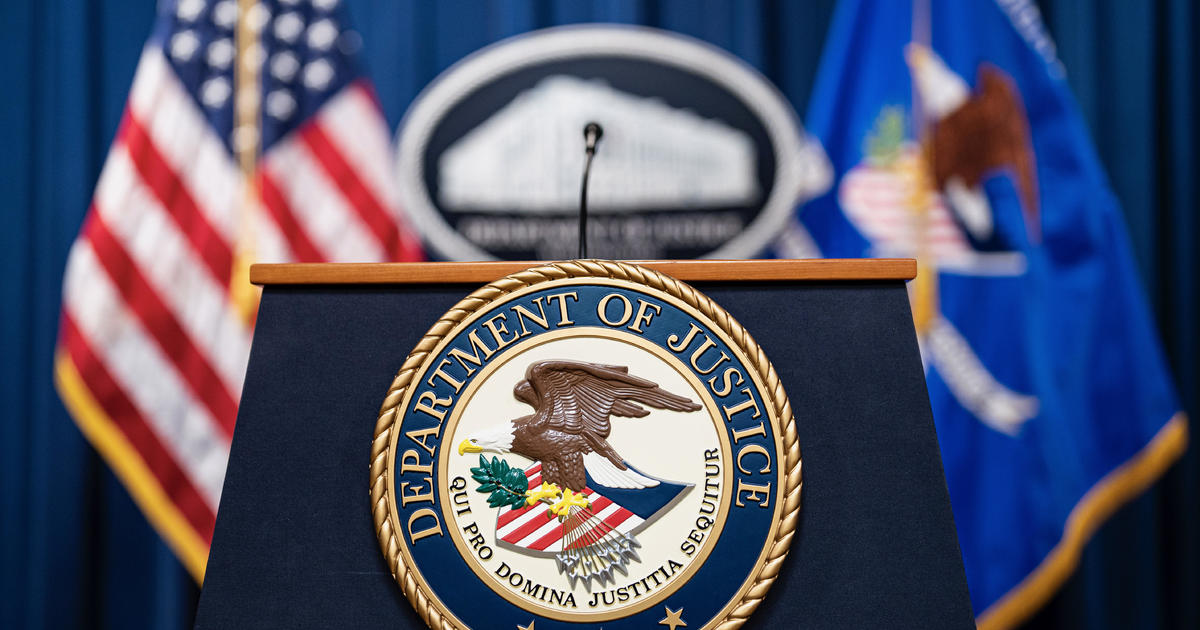The Justice Department failed to follow department policy and ignored some established protections when seeking records from members of Congress, dozens of congressional staffers and members of the media during the first Trump administration, an internal watchdog found.
A report by the department’s Office of Inspector General released on Tuesday focused on numerous leak investigations launched by the Justice Department and the FBI between 2017 and 2020 to determine how eight journalists from the Washington Post, the New York Times and CNN obtained classified information that appeared in reports. The data mostly included metadata about emails and phone calls, and did not contain the content of the communications.
In 2017, FBI investigators honed in on members of Congress and their staff as possible sources of various news reports, eventually obtaining data from two Democratic lawmakers and 43 congressional staffers from both parties. Inspector General Michael Horowitz criticized the large number of congressional employees whose information was obtained, and urged the department to implement stronger policies to protect the data of members of Congress and their staff.
“[D]ozens of congressional staffers became part of the subject pool in a federal criminal investigation for doing nothing more than performing constitutionally authorized oversight of the executive branch,” the report said. In a 2023 lawsuit against the Justice Department, Kash Patel, Trump’s pick to serve as FBI director in the upcoming administration, said he was one of those staffers while working for the House Intelligence Committee. Patel alleged the collection was “in complete contravention of the Fourth Amendment to the U.S. Constitution.”
The inspector general also revealed the two lawmakers were targeted because a Democratic staffer “identified them to investigators as potential leakers but without providing any evidentiary support for the claim.”
CBS News reported in 2021 that Justice Department prosecutors had subpoenaed Apple for data from the accounts of Reps. Adam Schiff and Eric Swalwell of California while investigating leaks of classified information related to contacts between aides to President-Elect Donald Trump and Russia in the early days of the Trump administration. Both men criticized the investigative steps at the time. Schiff was sworn in this week as the next senator from California, and Swalwell remains in the House.
There were four secret investigations in total, all of which were closed without criminal charges. The probes emerged into public view in 2021, when the Biden administration informed the three news organizations that their records had been swept up in the Trump-era probes. The Post, the Times and CNN each announced and condemned the revelations at the time.
Notably, the inspector general’s review said there was no evidence that the investigations were influenced by politics or other improper considerations. The report also said that certain processes and approvals that are now required were not in place at the time.
However, the report said the decision to go after the communications of congressional staffers and members “implicated the constitutional rights and authorities or a co-equal branch of government.”
Such conduct, the report argued, “risks chilling Congress’ ability to conduct oversight of the executive branch.” The inspector general said there was no definitive department policy on the matter and much of the decision-making was left up to line prosecutors on the cases. As a result, the report called for further safeguards and policy changes, some of which have been implemented.
Unlike investigations into members of Congress, Justice Department policy stipulates that prosecutors must first prove to have “exhausted” other avenues before seeking to secretly obtain records from members of the media. But Horowitz found investigators in 2020 “did not fully adhere” to other policies when they turned their attention to the news media organizations that published the classified information.
According to the report, then-Attorney General William Barr authorized the collection of the journalists’ communication data because policy required senior approval for investigations into journalists, but prosecutors working on the cases did not follow other procedures. Horowitz found that in all of the investigations, the Justice Department’s New Media Review Committee — a group of officials within the department tasked with reviewing such investigative steps — was not established. The report also said prosecutors failed to obtain necessary sign-off from the intelligence community before collecting communications data in at least one instance.
Unsealed court records showed the requests were made in the final weeks of Trump’s first term. Barr did not agree to be interviewed for the inspector general’s report. The former head of the Justice Department’s national security division told the inspector general Barr and his predecessor had “made it very clear leak investigations were a priority of the Department.”
In our judgment, the Department’s deviation from its own requirements indicates a troubling disparity between, on the one hand, the regard expressed in Department policy for the roles of the news media in American democracy and, on the other hand, the Department’s commitment to complying with the limits and requirements that it intended to safeguard that very role,” Horowitz wrote.
Following the revelations that the reporters were subjects of the Trump-era Justice Department investigations, the Garland Justice Department changed department policies governing news media organizations.

